Can you please tell me where you are right now and what the situation is?
I am still staying in the city where I live — Cherkasy. It is located in central Ukraine and so the situation here is more or less calm, although every day we have to react at air alarms. On the other hand many of my friends are now suffering because of the war. Some of them are at places currently under the Russian occupation. The other friends have been forced to leave their cities (Kharkiv, Chernihiv and others) due to large-scale bombing and destruction. There are friends who are still in Mariupol. Nowadays the city is completely besieged and in last two weeks the Russian military forces haven´t alowed the civilians to be evacuated. What´s more, they haven´t enabled any humanitarian aid to be sent to the city either.
The sources in Ukraine claim that the war has been going on for years now, and only now the world have noticed. Do you agree with it?
Yes, the war of the Russian Federation against Ukraine began in 2014 when Crimea and a part of eastern Ukraine were annexed. It has not stopped ever since but had a local character.
Was your daily life affected in any way by the conflict before the invasion started?
No, during that time it did not directly affect me or my family but it affected millions of other Ukrainians. When the invasion began I started to help with the support of the Ukrainian army quite regularly.
What does your life look like now?
I work at university. The studying process has been suspended now. Every day I help the forces in the local territorial defense by building protective structures, weaving camouflage nets and collecting different goods and food for displaced people and the army.
How did you experience the beginning of the Russian invasion on 24th February?
I wish none of your compatriots were woken up early morning by a phone call from relatives saying that the war has begun.
Are you planning to leave Ukraine?
I am staying in Cherkasy with my family. I am determined to join our soldiers in the defense of our country if necessary.
What do Ukraine people think of president Zelensky?
In the wartime the Ukrainians do not discuss their political preferences. Everyone is united around our confrontation with the enemy. In this difficult situation, our president has proved to be a real man. We are proud of his courage.

Maksym Gavryljuk. Foto: archív Maksyma Gavryljuka.
How do you rate the attitude of the Western countries and their help?
We feel strong support from many countries. We really appreciate everything that our foreign partners do. We also know that there is a certain aid which is not obvious for public. At the same time we are closely monitoring countries that have taken a neutral position and are contributing to Russia’s criminal regime.
You work for the Ukrainian Nature Conservation Group. Among other things, it published extensive criticism of WWF International and other environmental organizations. Can you tell me more about that?
The Ukrainian Nature Conservation Group is one of the most active non-governmental organizations in Ukraine. UNCG is currently conducting an active campaign to involve international environmental activists in the fight against Russia. We are outraged by the fact that when the whole civilized world condemned the Russian war against Ukraine, such public organizations as WWF and BirdLife International did not clarify their position. As the war has an impact on Ukraine’s environment, international environmental organizations should not remain silent in this situation.
What specific negative consequences does the war in Ukraine have in the environment today?
Many objects of the nature reserve fund (NRF) are currently occupied temporarily. Therefore, Ukraine cannot guarantee the preservation of biodiversity in these territories. Some zoos, nature reserves and rehabilitation/breeding centers have been abandoned without food for animals. During air strikes, our enemy actively attacks oil depots and other facilities, which is what entails large-scale air pollution. As a result of mass displacement and destruction of homes, many pets found themselves on the streets. Nevertheless there have been a lot of Ukrainian people observed when putting their lives at risk to save the pets. The situation in livestock complexes that are now in the temporarily occupied territories is a serious problem. Due to the lack of food, millions of farm animals may die in the nearest future. It will be impossible to dispose of these animals in a safe way under such circumstances. Ukraine is also one of the important centers for farm animals breeding. There is a real risk of extinction of breeds at the moment due to the reasons mentioned above.
UNCG has launched a fundraising campaign to support national parks and reservations. What are the funds going to be used for?
This initiative has been launched because the government cannot transfer funds to institutions located in the temporarily occupied territories now. Therefore, our organization sometimes uses money transfers for trustworthy and honest people that we know in person and who work in these institutions. These funds are mainly used for animal food purchases — for example for animals in the Askania-Nova Biosphere Reserve. In some cases the funds are spent on food purchases for the staff people in the parks who find themselves in a humanitarian crisis.
How is the war in Ukraine related to the environment around the world?
The whole world now sees that the Russian invaders not only do not care about the environment, but they also use environmental security as one of the levers of influence. Shelling of the Zaporizhzhia Nuclear Power Station (NPS) by tanks, as well as the bringing the nuclear waste landfill near the Chernobyl NPS to a critical situation are very prominent examples of this statement. The occupiers have already attempted to set fire to forests in the Chernobyl Exclusion Zone. It is obvious that man-made disasters will have consequences for the whole world.
How can the global environmental movement help you?
At this stage, the scientists and civil society activists who have been left homeless and without livelihoods need the most help. The zoos, the nature reserves and the rehabilitation/breeding centers for animals that have been left without funding also need financial assistance. All the other environmental consequences of the war will have to be eliminated after its end.
Can our readers do something to protect the environment?
You can transfer funds to the UNCG bank account and support the most important environmental initiatives today. Details for the transfer can be found here.
Or you can join initiatives calling for a ban on imports of Russian seafood or Russian and Belarusian timber.
Thank you for the interview.
Thanks to Oleksij Vasyliuk for helpful consultations and Oleksii Marushchak and Martin Kupka for their help with the translation of the interview into English.
The author studies at the Faculty of Social Sciences and the Faculty of Science of Masaryk University. Contact: kajakupkova@seznam.cz.
Pravidla pro komentáře: Redakce Sedmé generace si vyhrazuje právo smazat příspěvek, který nemá nic společného s tématem, obsahuje vulgarismy, rasistické a xenofobní vyjadřování či jiné urážky ostatních, obsahuje spam a komerční reklamu nebo je jinak nevhodný. Porušení pravidel může mít pro uživatele za následek dočasné nebo trvalé znemožnění vkládání dalších komentářů.
Upozornění: Publikovat články nebo jejich části, jakož i zveřejňovat fotografie a kresby z časopisu Sedmá generace nebo z jeho internetových stránek je možné pouze se souhlasem redakce.

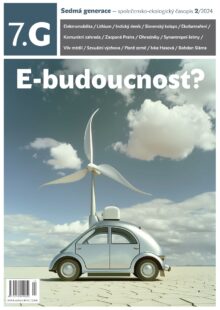
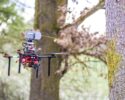



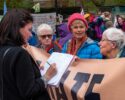
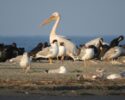
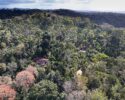
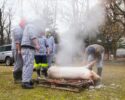





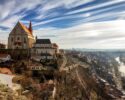
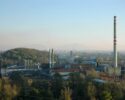
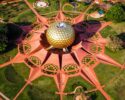

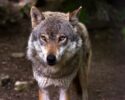
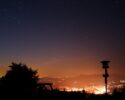
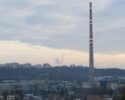

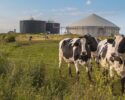
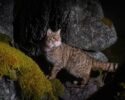
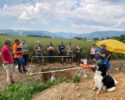
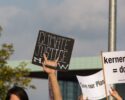
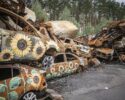

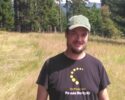
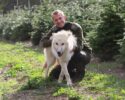
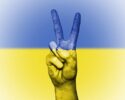



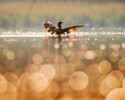
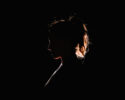



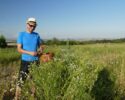
Napsat komentář